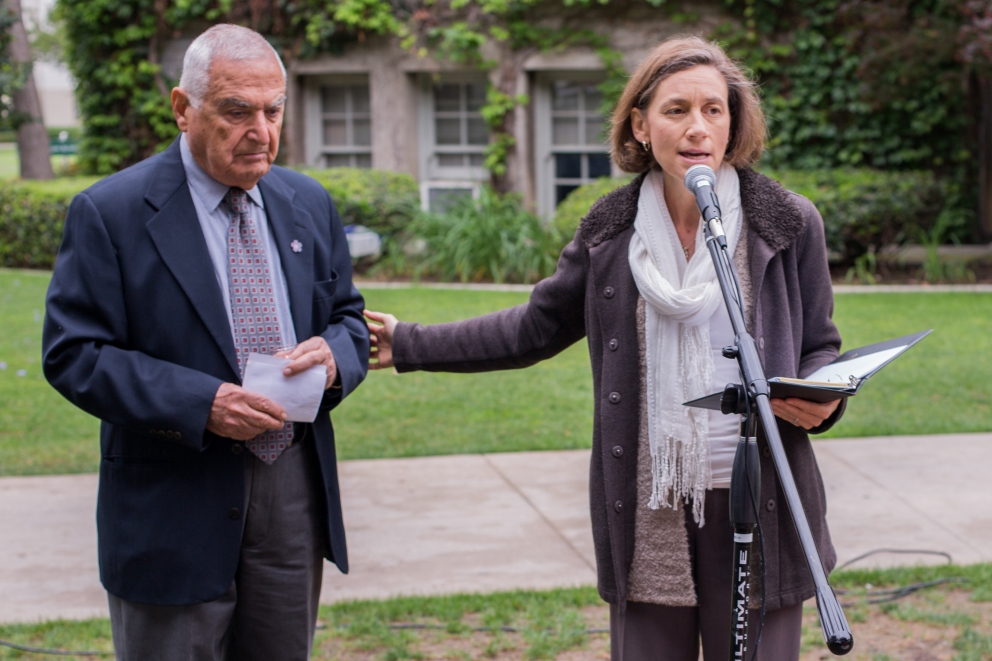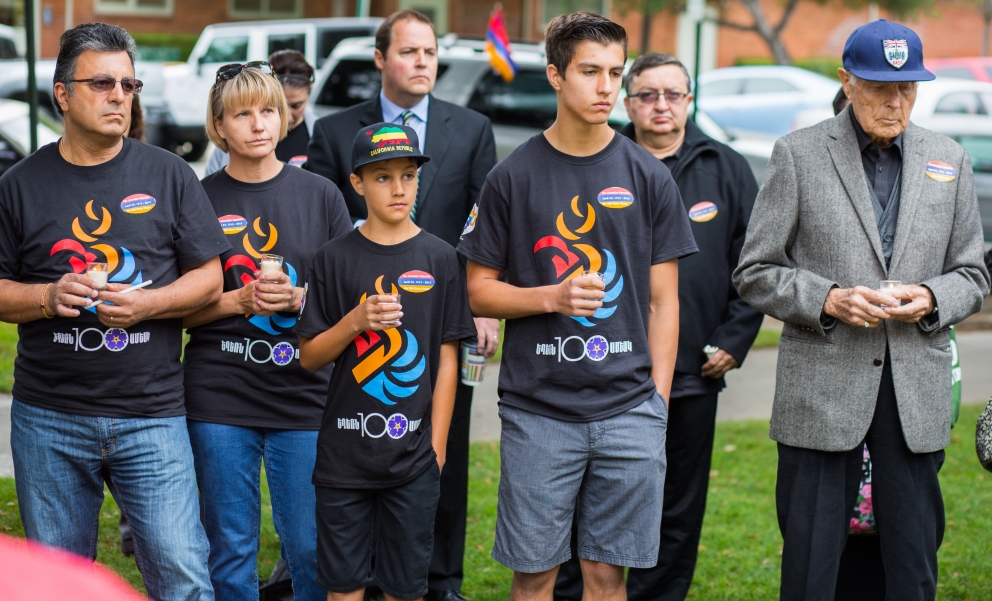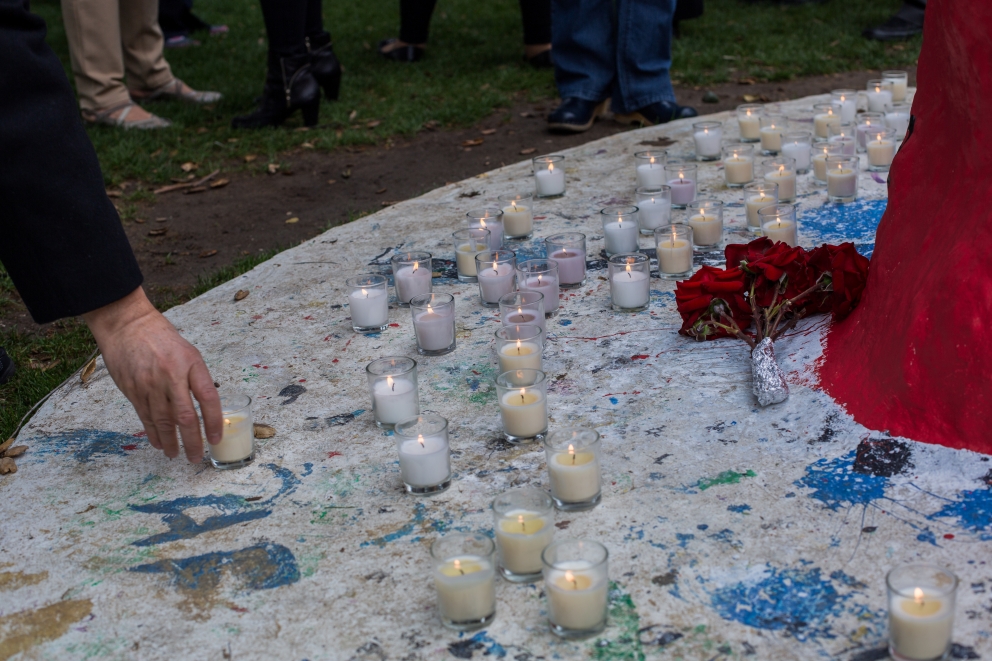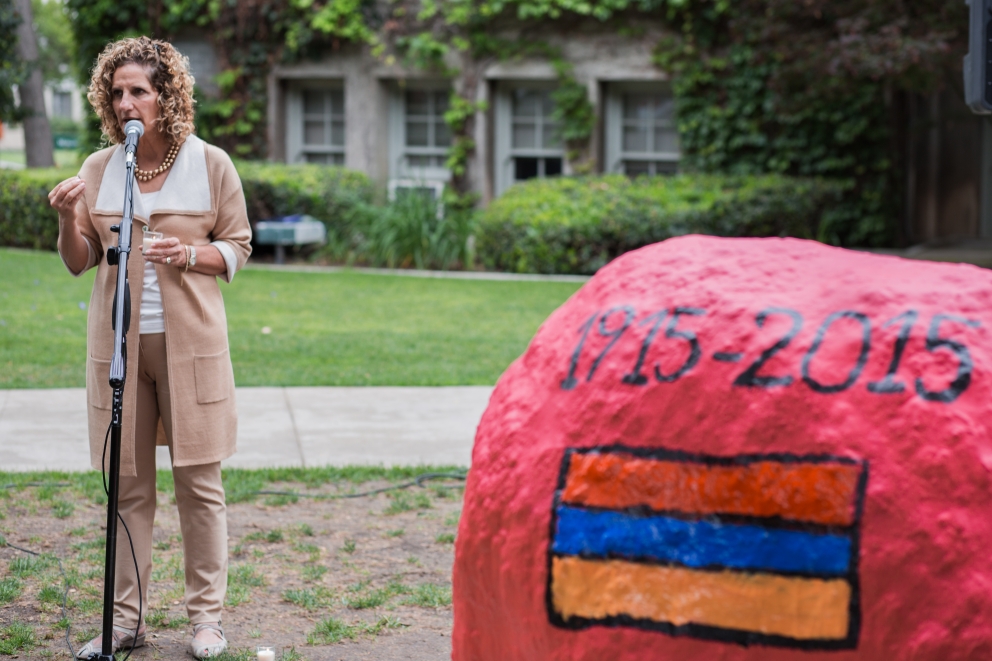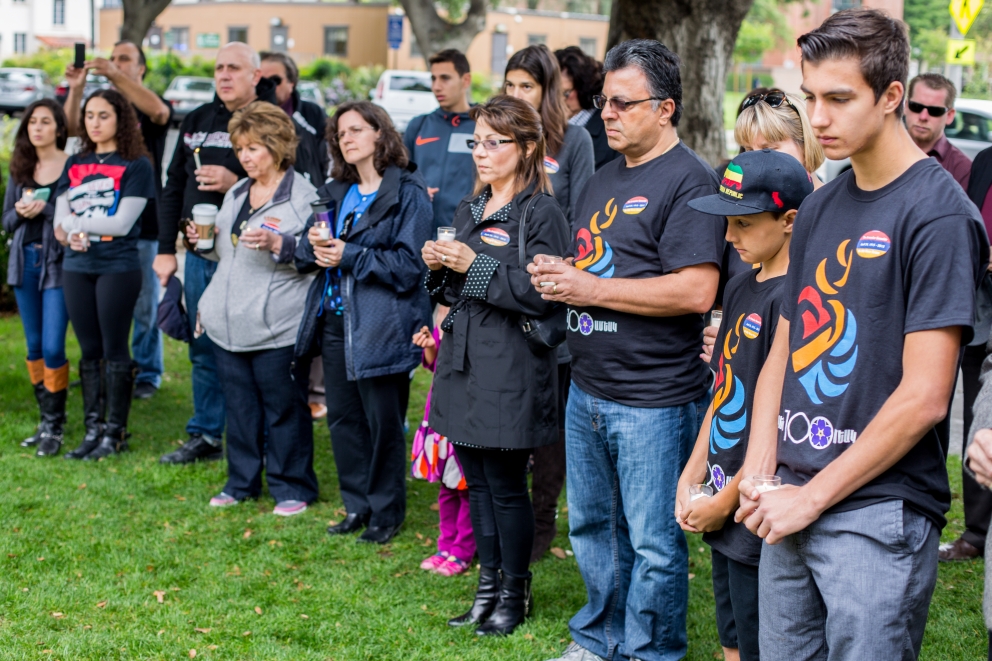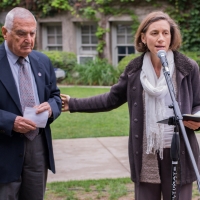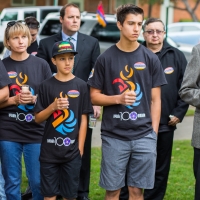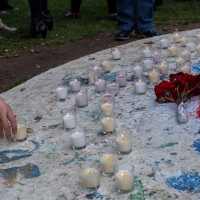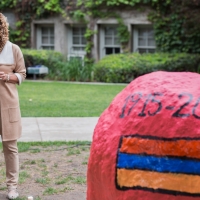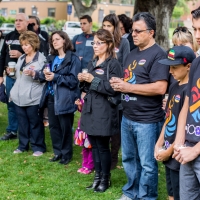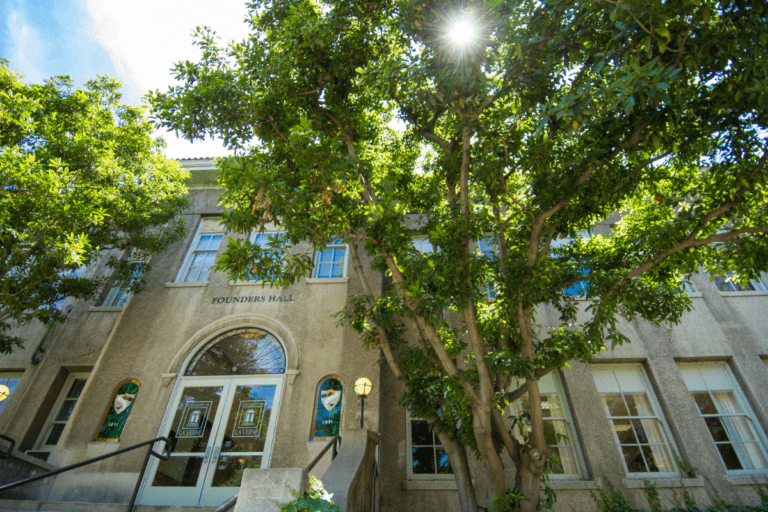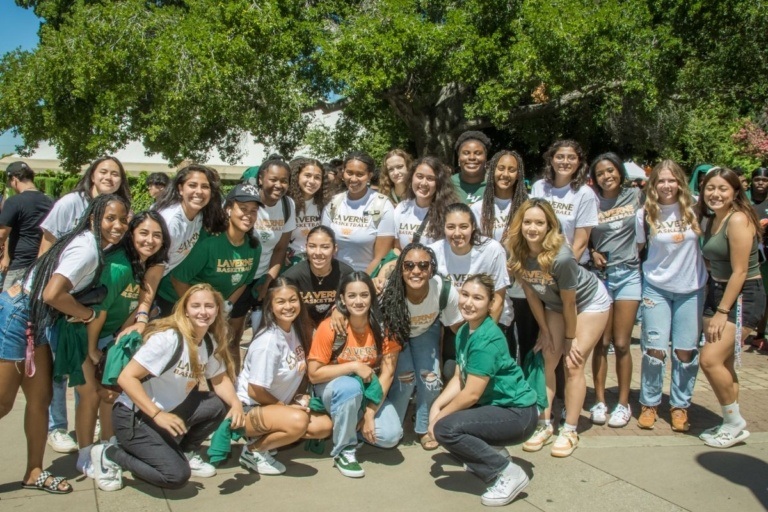La Verne Commemorates 100th Anniversary of Armenian Genocide
University of La Verne alumna Kohar Aprahamian tears up when she recalls the story of her grandfather fleeing the Armenian Genocide in 1915. At 7-years-old, the young boy suddenly found himself as head of the house because invading Turks killed his father.
The boy, his younger brother and mother took refuge in the home of a neighboring Turkish family, who then helped them escape into Syria.
“I didn’t live it, but it’s such an open wound for me and my family,” Aprahamian said.
April 24 marked the 100th anniversary of the Armenian Genocide. A protest march to the Turkish Consulate was expected to draw thousands of Armenians to the Los Angeles area. Several dozen University of La Verne faculty, staff, students and Armenians from the surrounding community also gathered in front of Founders Hall at La Verne for a candle lighting, prayer and remembrance.
The Armenian Genocide occurred during World War I against the Armenians of the Ottoman Empire, resulting in the deaths of an estimated 1.5 million people. Many were cast out into the desert to die of hunger and thirst, but survivors wound up relocating to neighboring countries such as Syria and Lebanon.
“For us, it’s important to remember because we lost everything. Not only did we lose our land, but we lost our culture,” said Raffi Zinzalian, Graphics General Manager for the University.
Professor of Computer Science Seta Whitby said her grandmother fled to Syria and later Lebanon in 1915, surviving by selling pieces of jewelry hidden in the bottom of a ceramic jar. Whitby said the family poured concrete over the jewelry and then put jam on top.
“The Turks came in with their swords and were staring at the jar,” Whitby said. “They stirred the jam, thought it was empty and let them walk.”
Sharing stories about the genocide and pushing for its recognition is a change from the past, when many survivors raised their children to keep quiet about the event. Zinzalian said his mother taught her children to never speak the Armenian language outside the home to avoid being captured.
But attendees at the commemoration said it is now important to speak out so the genocide does not fade from memory.
“To the families here today, my heart goes out to you because these are atrocities that can never be forgotten,” said University of La Verne President Devorah Lieberman.
La Verne Vice President of Finance and Treasurer Avo Kechichian took his children out of school so they could participate in the genocide protest march in Los Angeles.
“It’s to honor the legacy of all those who perished during the genocide and so genocide won’t repeat again,” he said.
Silva Gharibian, who lives in La Verne with her family, came to the ceremony to honor her ancestors, who fled the genocide and relocated in Syria, Lebanon and other Middle Eastern countries.
She simply wants to see the genocide acknowledged by countries who continue to deny it. But being surrounded by many descendants of genocide survivors, despite the vast attempts to exterminate them, gives her hope.
“As we can see today, that (effort) failed,” she said.
